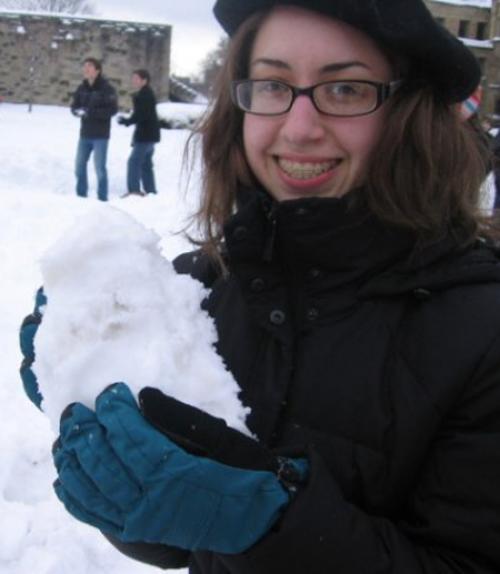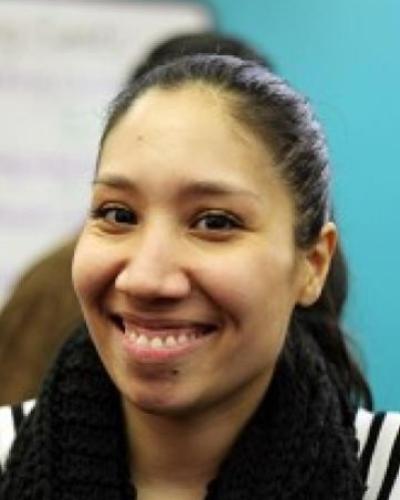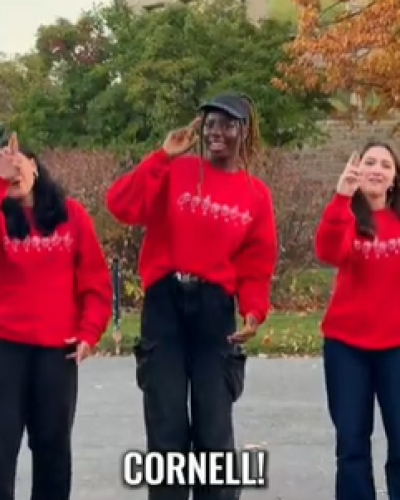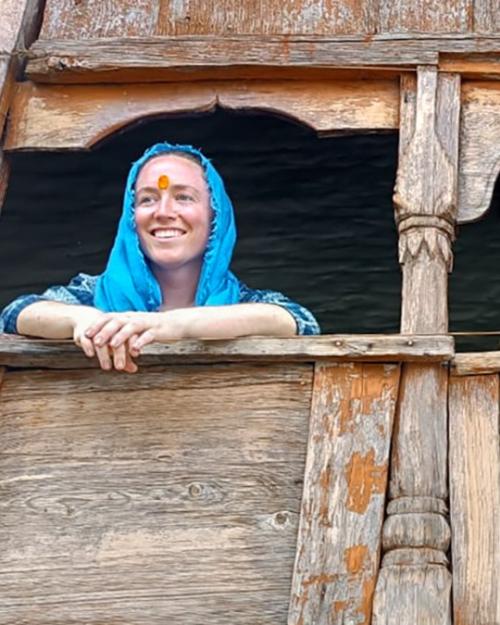 Department Homepage
The College of Arts & Sciences
Department Homepage
The College of Arts & Sciences
Linguistics grad uses social media in dialect research
When Martha Austen ’13 used to say she was fixin’ to eat supper, she wondered why her Cornell friends would raise their eyebrows a bit in her direction.Now, she’s made the study of sociophonetics — the study of sound and how speech varies based on different social factors — her focus as a graduate student at Ohio State University.And she’s using Twitter as a way to gain access to a mountain of data on people’s speech and dialects.




